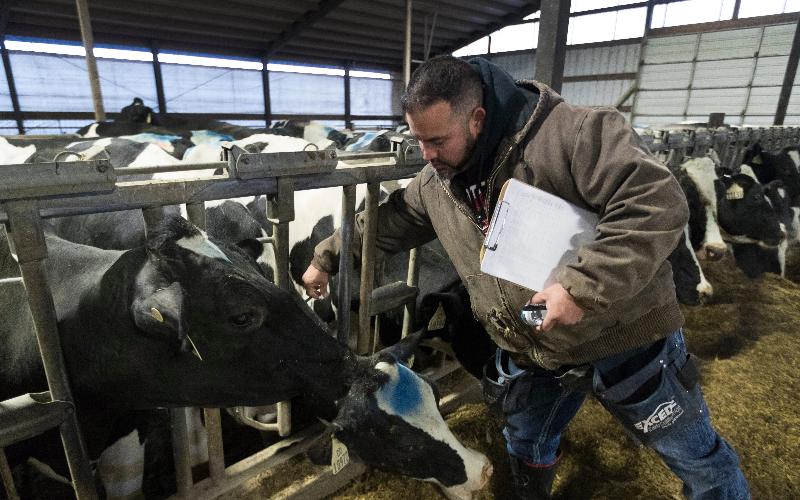Dairy Crisis: 42% of Mexican Producers Cut from Federal Support
Sourse: mx.edairynews.com
A staggering 42% of Mexican dairy producers have been excluded from federal support programs, raising concerns over the industry's sustainability.

The Mexican dairy sector faces a dire situation following a federal decision that has seen 42% of producers excluded from government support programs. This controversial move heightens uncertainty regarding the sustainability of their operations. For farmers, analysts, and the dairy industry at large, the wide-scale elimination of subsidies not only means the loss of crucial financial assistance but also jeopardizes the ability of small and medium-sized producers to contend with escalating production costs and market volatility.
The exclusion of such a significant portion of dairy farmers sets off a domino effect, directly impacting national milk production. Deprived of program support, many producers will be forced to reduce their herds, sell cattle, or, in the worst case, abandon dairy farming altogether. This could lead to a decline in the supply of raw milk for the processing industry, potentially resulting in higher consumer prices and increased reliance on imported milk powder. Federal programs are designed to be a lifeline, especially for small producers who are less cost-efficient and have limited access to technology and financing.
The rationale behind this culling of beneficiaries and the exclusion of a sector segment remains unclear, sparking criticism and concern among producer organizations and local authorities. Transparency in resource allocation is critical for building trust and developing the agricultural field. The dairy economies of key milk-producing states may be severely impacted. The exclusion leads to liquidity challenges in the farms cut off from aid, hindering investment in cattle management, nutrition, and animal health, thereby threatening milk quality in the long run.
An urgent review of public policies governing the sector is required to ensure support reaches those who truly need it and to promote competitiveness without leaving behind such a substantial part of the production base. In summary, the exclusion of 42% of dairy producers from federal programs marks a concerning turning point for Mexican agriculture. This event underscores the sector’s fragility amidst public spending adjustments and the pressing need for more robust and equitable strategies to ensure farm sustainability and the nation’s food security. The immediate future demands a coordinated response to prevent a milk supply crisis.
The exclusion of such a significant portion of dairy farmers sets off a domino effect, directly impacting national milk production. Deprived of program support, many producers will be forced to reduce their herds, sell cattle, or, in the worst case, abandon dairy farming altogether. This could lead to a decline in the supply of raw milk for the processing industry, potentially resulting in higher consumer prices and increased reliance on imported milk powder. Federal programs are designed to be a lifeline, especially for small producers who are less cost-efficient and have limited access to technology and financing.
The rationale behind this culling of beneficiaries and the exclusion of a sector segment remains unclear, sparking criticism and concern among producer organizations and local authorities. Transparency in resource allocation is critical for building trust and developing the agricultural field. The dairy economies of key milk-producing states may be severely impacted. The exclusion leads to liquidity challenges in the farms cut off from aid, hindering investment in cattle management, nutrition, and animal health, thereby threatening milk quality in the long run.
An urgent review of public policies governing the sector is required to ensure support reaches those who truly need it and to promote competitiveness without leaving behind such a substantial part of the production base. In summary, the exclusion of 42% of dairy producers from federal programs marks a concerning turning point for Mexican agriculture. This event underscores the sector’s fragility amidst public spending adjustments and the pressing need for more robust and equitable strategies to ensure farm sustainability and the nation’s food security. The immediate future demands a coordinated response to prevent a milk supply crisis.
Key News of the Week










